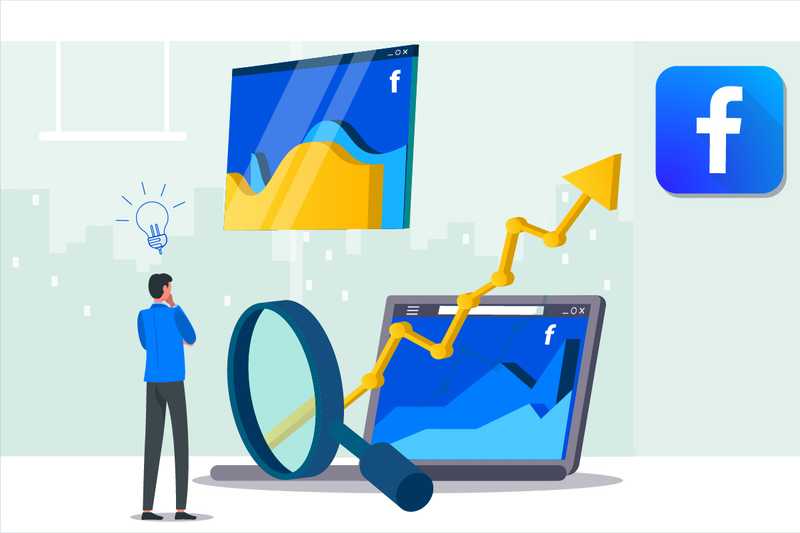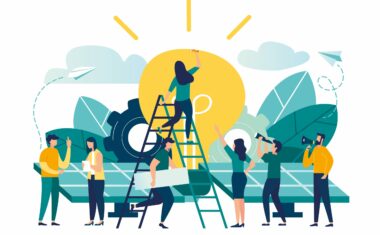When it comes to global impact and generous salaries, Facebook is hard to beat. With billions of users across a family of apps and hardware that includes Instagram, WhatsApp, Messenger, and Oculus, Facebook is a data-collecting and data-generating juggernaut that gives its data scientists opportunities to solve significant business problems, perform analytics at vast scales, and specialize in areas of data science that interests them.
Whether it’s using quantitative tools to measure how Facebook’s products are being used or applying machine learning algorithms to help small businesses target their ads on the Facebook platform, the company’s data scientists have no shortage of compelling and complex challenges to keep them busy.
Read on to learn more about the Facebook data scientist hiring process—and don’t forget to check out the guides below!
- Facebook Data Scientist Interview: A Complete Guide
- Facebook Data Scientist Internship: A Complete Guide
- How Much Does a Data Scientist at Facebook Earn?
- Day-in-the-Life of a Data Scientist at Facebook
What’s the work culture like at Facebook?
Whether you’re a data science intern or a seasoned machine learning professional, Facebook prides itself on giving every data scientist the opportunity to have a direct and meaningful impact on the business. The company values data scientists with creativity, curiosity, and initiative, according to former and current employees, and expectations are high for all its hires.
“They’re very data-driven,” Jaime Torres, a Springboard alumnus and current data scientist at Facebook said of the company. “[You get to work with] a lot of smart people, very personable people. Everyone’s just driven to get their work done. You can see that people are very excited about what they do.”
And, contrary to its early reputation of being a workplace that demanded long hours and offered poor work-life balance, Torres told Springboard that, these days, the company and its employees have a healthy attitude toward work, with Torres himself typically starting his workday at 8am and finishing at 4.30pm. Instead of relentless sprints, a typical week for him consists of planning meetings with stakeholders and time spent finding, cleaning, and analyzing data.
Check out this page to learn more about the day-to-day of a data scientist at Facebook.
What are the work benefits like at Facebook?
In addition to generous compensation packages, flexibility, and (in non-pandemic times) campuses around the world that boast complimentary cafes and restaurants, laundry services, salons, and organized recreational activities, Facebook employees receive a slew of other benefits.
- Complete coverage health insurance
- 21 days paid time off each year, with 30 days off to recharge once every five years
- Unlimited sick leave
- Four months of parental leave
- Childcare reimbursement
- Egg freezing and other fertility services
- Gym and wellness reimbursement
- Complimentary meals and snacks
- Remote work opportunities
Get To Know Other Data Science Students
Sam Fisher
Data Science Engineer at Stratyfy
Meghan Thomason
Data Scientist at Spin
Jonathan Orr
Data Scientist at Carlisle & Company
How much does a data scientist make at Facebook?
The base salary ranges for the average Facebook data scientist depend on years of experience, education, and location, and the median total compensation can greatly vary depending on whether someone qualifies for annual bonuses or stock grants.
At the most entry-level of the range, Facebook’s data science interns make $8,000 a month, in addition to benefits such as return airfare, a housing stipend for the duration of their internship, complimentary meals, and shuttle services.
Data scientists who hold an undergraduate degree in a relevant field such as computer science, statistics, or mathematics, and have a few years of experience under their belt can earn around $153,046, in addition to cash bonuses and stock grants.
Senior data scientists who also hold master’s degrees or a Ph.D. in a related field, such as machine learning, can make around $166,742, with additional cash bonuses and stock grants that can bring the total compensation in excess of $200,000.
Check out this page for more information about salary and benefits for data scientists at Facebook.
What’s the data scientist interview process like at Facebook?
Like many other major tech companies, Facebook’s interview process for data scientists typically includes phone interviews with recruiters where they ask high-level questions about an applicant’s background, interest in the company, work experience, and how their goals align with Facebook’s mission.
Qualified individuals who make it through to the onsite interviews—typically held at Facebook campuses in Menlo Park, New York City, or Seattle—then participate in an initial technical screen, and are presented with questions and problems to solve so that hiring managers can ascertain their product sense and analytical skills.
“At the end of the day, you’re being judged on your approach to solving problems, your ability to articulate and confidently prescribe your solution, and justify your reasoning,” said Jaime Torres, a Facebook data scientist.
When Torres interviewed with Facebook, he noted that the recruiting team looked for three things:
- Whether the applicant was a culture fit
- Whether the applicant had the breadth of experience to work independently; and
- Whether the applicant brought something new and valuable to the team
Check out this page to learn more about the interview process for data scientists at Facebook.
What’s the internship process for data scientists at Facebook?
Facebook offers multiple internship tracks for different demographics, such as Facebook University—an eight-week paid summer internship for qualified individuals from underrepresented backgrounds; a University Grad track for recent college graduates; and a traditional twelve-week summer internship.
Facebook interns are not all expected to be coding whizzes right off the bat, but familiarity with programming languages such as SQL and Python is expected, and those technical skills are further developed over the course of the internship.
In addition to picking up new skills, data science interns are assigned projects that allow them to contribute to Facebook’s teams and products in meaningful ways—former interns have built dashboards that track key business metrics, performed analysis on large data sets to identify actionable insights, and worked on projects affecting application speed, device capabilities, and navigational patterns. Facebook’s rainbow pride filter—launched after the U.S. Supreme Court legalized gay marriage in 2015 and used by millions of people—was built by two interns.
Check out this page to learn more about the internship process for data scientists at Facebook.

What’s it like to work as a data scientist at Facebook?
A Facebook data scientist’s day-to-day is largely determined by the product teams they’re on. While all of Facebook’s data scientists are skilled in SQL, Python, data processing, experiment design, and developing data-driven hypotheses, they each apply their skills to different areas of the business.
For example, Jaime Torres holds the title of Data Scientist at Facebook, but his work is specific to business intelligence, with a focus on helping small businesses use and evangelize the use of Facebook and its tools. Where his colleagues might use their data science skills to study user behaviors on Facebook’s news feed or improve facial recognition for photo-tagging, Torres has built models that help Facebook identify small businesses who are likely to be advocates for the platform.
“There are features in the model that we can select that tell us whether someone will be a good advocate,” Torres said. “It takes a giant sales funnel and makes it more efficient.”
In addition to spending much of his time working independently, Torres said there are also regular planning meetings to set team goals and expectations and to check in on project progress.
Springboard can help you get hired as a data scientist at Facebook
Torres credits Springboard with equipping him with foundational data science skills that he uses every day in his role at Facebook.
“When you start doing the Springboard curriculum, you go through ‘What is data?’, Python, data structures, and they’re not exactly the sexiest things in the world,” Torres said. “Everyone is probably in a rush to jump into hot topics like AI and whatnot. But, in actuality, I do a lot of SQL querying and cleaning up data—all the foundational stuff. So, it’s very important to get that foundation down.”The projects he completed as a Springboard student also helped prepare him for the work of a Facebook data scientist—the model he built to query Facebook’s small business databases, for example, is similar to a machine learning model he built as a student.
“I enjoyed doing Springboard because I was learning new things and acquiring new skills I could immediately apply,” Torres said.
Companies are no longer just collecting data. They’re seeking to use it to outpace competitors, especially with the rise of AI and advanced analytics techniques. Between organizations and these techniques are the data scientists – the experts who crunch numbers and translate them into actionable strategies. The future, it seems, belongs to those who can decipher the story hidden within the data, making the role of data scientists more important than ever.
In this article, we’ll look at 13 careers in data science, analyzing the roles and responsibilities and how to land that specific job in the best way. Whether you’re more drawn out to the creative side or interested in the strategy planning part of data architecture, there’s a niche for you.
Is Data Science A Good Career?
Yes. Besides being a field that comes with competitive salaries, the demand for data scientists continues to increase as they have an enormous impact on their organizations. It’s an interdisciplinary field that keeps the work varied and interesting.
10 Data Science Careers To Consider
Whether you want to change careers or land your first job in the field, here are 13 of the most lucrative data science careers to consider.
Data Scientist
Data scientists represent the foundation of the data science department. At the core of their role is the ability to analyze and interpret complex digital data, such as usage statistics, sales figures, logistics, or market research – all depending on the field they operate in.
They combine their computer science, statistics, and mathematics expertise to process and model data, then interpret the outcomes to create actionable plans for companies.
General Requirements
A data scientist’s career starts with a solid mathematical foundation, whether it’s interpreting the results of an A/B test or optimizing a marketing campaign. Data scientists should have programming expertise (primarily in Python and R) and strong data manipulation skills.
Although a university degree is not always required beyond their on-the-job experience, data scientists need a bunch of data science courses and certifications that demonstrate their expertise and willingness to learn.
Average Salary
The average salary of a data scientist in the US is $156,363 per year.
Data Analyst
A data analyst explores the nitty-gritty of data to uncover patterns, trends, and insights that are not always immediately apparent. They collect, process, and perform statistical analysis on large datasets and translate numbers and data to inform business decisions.
A typical day in their life can involve using tools like Excel or SQL and more advanced reporting tools like Power BI or Tableau to create dashboards and reports or visualize data for stakeholders. With that in mind, they have a unique skill set that allows them to act as a bridge between an organization’s technical and business sides.
General Requirements
To become a data analyst, you should have basic programming skills and proficiency in several data analysis tools. A lot of data analysts turn to specialized courses or data science bootcamps to acquire these skills.
For example, Coursera offers courses like Google’s Data Analytics Professional Certificate or IBM’s Data Analyst Professional Certificate, which are well-regarded in the industry. A bachelor’s degree in fields like computer science, statistics, or economics is standard, but many data analysts also come from diverse backgrounds like business, finance, or even social sciences.
Average Salary
The average base salary of a data analyst is $76,892 per year.
Business Analyst
Business analysts often have an essential role in an organization, driving change and improvement. That’s because their main role is to understand business challenges and needs and translate them into solutions through data analysis, process improvement, or resource allocation.
A typical day as a business analyst involves conducting market analysis, assessing business processes, or developing strategies to address areas of improvement. They use a variety of tools and methodologies, like SWOT analysis, to evaluate business models and their integration with technology.
General Requirements
Business analysts often have related degrees, such as BAs in Business Administration, Computer Science, or IT. Some roles might require or favor a master’s degree, especially in more complex industries or corporate environments.
Employers also value a business analyst’s knowledge of project management principles like Agile or Scrum and the ability to think critically and make well-informed decisions.
Average Salary
A business analyst can earn an average of $84,435 per year.
Database Administrator
The role of a database administrator is multifaceted. Their responsibilities include managing an organization’s database servers and application tools.
A DBA manages, backs up, and secures the data, making sure the database is available to all the necessary users and is performing correctly. They are also responsible for setting up user accounts and regulating access to the database. DBAs need to stay updated with the latest trends in database management and seek ways to improve database performance and capacity. As such, they collaborate closely with IT and database programmers.
General Requirements
Becoming a database administrator typically requires a solid educational foundation, such as a BA degree in data science-related fields. Nonetheless, it’s not all about the degree because real-world skills matter a lot. Aspiring database administrators should learn database languages, with SQL being the key player. They should also get their hands dirty with popular database systems like Oracle and Microsoft SQL Server.
Average Salary
Database administrators earn an average salary of $77,391 annually.
Data Engineer
Successful data engineers construct and maintain the infrastructure that allows the data to flow seamlessly. Besides understanding data ecosystems on the day-to-day, they build and oversee the pipelines that gather data from various sources so as to make data more accessible for those who need to analyze it (e.g., data analysts).
General Requirements
Data engineering is a role that demands not just technical expertise in tools like SQL, Python, and Hadoop but also a creative problem-solving approach to tackle the complex challenges of managing massive amounts of data efficiently.
Usually, employers look for credentials like university degrees or advanced data science courses and bootcamps.
Average Salary
Data engineers earn a whooping average salary of $125,180 per year.
Database Architect
A database architect’s main responsibility involves designing the entire blueprint of a data management system, much like an architect who sketches the plan for a building. They lay down the groundwork for an efficient and scalable data infrastructure.
Their day-to-day work is a fascinating mix of big-picture thinking and intricate detail management. They decide how to store, consume, integrate, and manage data by different business systems.
General Requirements
If you’re aiming to excel as a database architect but don’t necessarily want to pursue a degree, you could start honing your technical skills. Become proficient in database systems like MySQL or Oracle, and learn data modeling tools like ERwin. Don’t forget programming languages – SQL, Python, or Java.
If you want to take it one step further, pursue a credential like the Certified Data Management Professional (CDMP) or the Data Science Bootcamp by Springboard.
Average Salary
Data architecture is a very lucrative career. A database architect can earn an average of $165,383 per year.
Machine Learning Engineer
A machine learning engineer experiments with various machine learning models and algorithms, fine-tuning them for specific tasks like image recognition, natural language processing, or predictive analytics. Machine learning engineers also collaborate closely with data scientists and analysts to understand the requirements and limitations of data and translate these insights into solutions.
General Requirements
As a rule of thumb, machine learning engineers must be proficient in programming languages like Python or Java, and be familiar with machine learning frameworks like TensorFlow or PyTorch. To successfully pursue this career, you can either choose to undergo a degree or enroll in courses and follow a self-study approach.
Average Salary
Depending heavily on the company’s size, machine learning engineers can earn between $125K and $187K per year, one of the highest-paying AI careers.
Quantitative Analyst
Qualitative analysts are essential for financial institutions, where they apply mathematical and statistical methods to analyze financial markets and assess risks. They are the brains behind complex models that predict market trends, evaluate investment strategies, and assist in making informed financial decisions.
They often deal with derivatives pricing, algorithmic trading, and risk management strategies, requiring a deep understanding of both finance and mathematics.
General Requirements
This data science role demands strong analytical skills, proficiency in mathematics and statistics, and a good grasp of financial theory. It always helps if you come from a finance-related background.
Average Salary
A quantitative analyst earns an average of $173,307 per year.
Data Mining Specialist
A data mining specialist uses their statistics and machine learning expertise to reveal patterns and insights that can solve problems. They swift through huge amounts of data, applying algorithms and data mining techniques to identify correlations and anomalies. In addition to these, data mining specialists are also essential for organizations to predict future trends and behaviors.
General Requirements
If you want to land a career in data mining, you should possess a degree or have a solid background in computer science, statistics, or a related field.
Average Salary
Data mining specialists earn $109,023 per year.
Data Visualisation Engineer
Data visualisation engineers specialize in transforming data into visually appealing graphical representations, much like a data storyteller. A big part of their day involves working with data analysts and business teams to understand the data’s context.
General Requirements
Data visualization engineers need a strong foundation in data analysis and be proficient in programming languages often used in data visualization, such as JavaScript, Python, or R. A valuable addition to their already-existing experience is a bit of expertise in design principles to allow them to create visualizations.
Average Salary
The average annual pay of a data visualization engineer is $103,031.
Resources To Find Data Science Jobs
The key to finding a good data science job is knowing where to look without procrastinating. To make sure you leverage the right platforms, read on.
Job Boards
When hunting for data science jobs, both niche job boards and general ones can be treasure troves of opportunity.
Niche boards are created specifically for data science and related fields, offering listings that cut through the noise of broader job markets. Meanwhile, general job boards can have hidden gems and opportunities.
Online Communities
Spend time on platforms like Slack, Discord, GitHub, or IndieHackers, as they are a space to share knowledge, collaborate on projects, and find job openings posted by community members.
Network And LinkedIn
Don’t forget about socials like LinkedIn or Twitter. The LinkedIn Jobs section, in particular, is a useful resource, offering a wide range of opportunities and the ability to directly reach out to hiring managers or apply for positions. Just make sure not to apply through the “Easy Apply” options, as you’ll be competing with thousands of applicants who bring nothing unique to the table.
FAQs about Data Science Careers
We answer your most frequently asked questions.
Do I Need A Degree For Data Science?
A degree is not a set-in-stone requirement to become a data scientist. It’s true many data scientists hold a BA’s or MA’s degree, but these just provide foundational knowledge. It’s up to you to pursue further education through courses or bootcamps or work on projects that enhance your expertise. What matters most is your ability to demonstrate proficiency in data science concepts and tools.
Does Data Science Need Coding?
Yes. Coding is essential for data manipulation and analysis, especially knowledge of programming languages like Python and R.
Is Data Science A Lot Of Math?
It depends on the career you want to pursue. Data science involves quite a lot of math, particularly in areas like statistics, probability, and linear algebra.
What Skills Do You Need To Land an Entry-Level Data Science Position?
To land an entry-level job in data science, you should be proficient in several areas. As mentioned above, knowledge of programming languages is essential, and you should also have a good understanding of statistical analysis and machine learning. Soft skills are equally valuable, so make sure you’re acing problem-solving, critical thinking, and effective communication.
Since you’re here…Are you interested in this career track? Investigate with our free guide to what a data professional actually does. When you’re ready to build a CV that will make hiring managers melt, join our Data Science Bootcamp which will help you land a job or your tuition back!






